Scotland Gift Giving Customs
From Giftypedia
As part of the United Kingdom, Scotland occupies the northern third of the island of Great Britain. But, despite it's allegiance to the monarchy, Scotland has a very long and rich history of it's own. Traditional rites and festivals unique to this beautiful and historic country still abound, and should be considered upon your travels here.[1]
Capital: Edinburgh
Languages: Gaelic
Currency: Sterling Banknote
Flag of ScotlandThe national Flag of Scotland, known as the Saltire, or St. Andrew's Cross
The Royal Standard of the King of Scots, also known as the Royal Flag of Scotland or the Lion Rampant, is the flag used historically by the King of Scots. It remains the personal banner of the monarch, and use of this flag is restricted by law. It is often regarded as a second - though unofficial - national flag for Scotland, and is typically seen at sporting events.[2]
Scottish Culture
Traditional Scottish Holidays
As a country steeped in ancient tradition, holidays are commonplace in this mystical land. Most harken back to the time of the Vikings or pagan celebrations; and some rituals continue to be carried out in villages around Scotland to this day. Each has it's own history and significance. All are worth experiencing. Here are a few of the most spectacular:
Christmas
Otherwise known as "Yule", which comes from the Old Norse word, "jól", Christmas was originally celebrated as a midwinter pagan festival. Scottish traditions going back to it's pagan roots still remain, but the Church eventually took over this celebration, which included the burning of the Yule log, kissing under the mistletoe (Did you know this came from a Druidic fertility rite?), and homes were decorated with holly. But after the Church Reformation in the 16th century, the celebration of Christmas was banned in Scotland. Until the 1960s, Christmas Day was a considered a normal working day for most people in this country, and is still a largely non-religious celebration. Gift giving does take place now, but the large feasts and celebrations are reserved for the New Year, when Santa Claus also arrives here.[3]
Hogmanay (New Year's Eve)
By far the biggest holiday in Scotland, New Year's Eve, traditionally known as Hogmanay, has a long, rich heritage here - with much of the lore stemming back to the days of the Vikings. Hogmanay is believed to have received it's name from the original pagan celebration of the winter solstice. Later, due to the church's ban on Christmas, it was typical for Scots to work on Christmas day. Thus, giving gifts in Scotland is reserved for the New Year when family and friends gather for a party and to exchange presents. Magical fireworks displays and torchlight processions take place in many cities throughout Scotland.
Certain Hogmanay superstitions still hold as well. Before midnight on the 31st, the house is cleaned and all debts are cleared. Immediately after midnight it is traditional to sing Scotsman Robert Burns' "For Auld Lang Syne". And "first footing" (that is, the "first foot" in the house after midnight) is still common in Scotland. To ensure good luck for the house, the first foot in the door should be male, dark and should bring the traditional gifts of whiskey and shortbread.
It may also be worth remembering that January 2nd is a holiday in Scotland - typically a day of recovery from a week of merry indulgence!
Other Traditional Celebrations
Highland Games The Highland Games, one of the more famous Scotland holidays, are a favorite for citizens and tourists alike. The last Saturday in September, travelers will find Scots competing in various traditional highland competitions that are well worth viewing.
Burn's Night - January 25
Guy Fawkes Day - November 5
St. Andrew's Day - November 30
Business Gift Giving in Scotland
Scotland has a western style economy, for which tourism is widely recognized as a key contributor.[4] As a tourist, you'll never be at a loss for new sights or sounds. Travelling for business typically carries with it it's own do's and don'ts. While gift giving in Scotland is rare in the business world, [5] a meal at a nice restaurant is always a good practice.
If you really want to show a token of appreciation to your associate, it's perfectly acceptable to offer a small memento...
- Pen, paperweight, diary and other things with a company logo.
- Coffee table book about your country
- Bottle of good whisky.
If you're invited to a colleague’s house for dinner, you should show your gratitude by buying a modest gift, such as a bouquet of flowers, for the hostess[6] or wine and chocolates are also appreciated.
Social Etiquette
- When invited to a social gathering or a business meeting, always be on time.
- In Scotland, it is customary for men to wear kilts for formal occasions. It's bad form to make jokes about the kilt or to ask him what he wears under it.
- Don't use first names unless asked to, use Mr., Mrs., or Ms. Sir is reserved for only those who have been knighted.
- Avoid grouping the Scots with the English, they are very proud of their distinct heritage.
- Avoid talking too loudly in public as it can be seen as embarrassing.[7]
Related Articles
References
- ↑ Wikipedia - Scotland
- ↑ Silicon Glen
- ↑ Rampant Scotland
- ↑ Wikipedia - Scotland
- ↑ kwintessential.co.uk Cross-Cultural Gift Giving
- ↑ WorkEtiquette.co.uk
- ↑ Career Mosaic India: Scotland Do's and Dont's

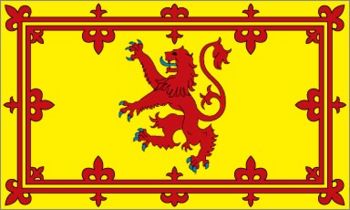
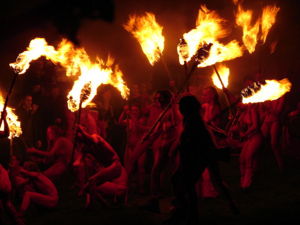
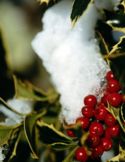
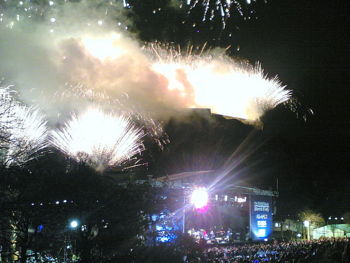

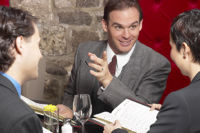

 Printer Friendly
Printer Friendly
